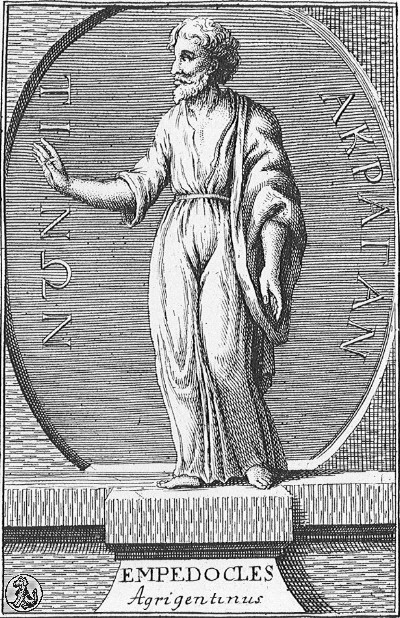from fr. 17
Variant translations:
But come! but hear my words! For knowledge gained/Makes strong thy soul. For as before I spake/Naming the utter goal of these my words/I will report a twofold truth. Now grows/The One from Many into being, now/Even from one disparting come the Many--/Fire, Water, Earth, and awful heights of Air;/And shut from them apart, the deadly Strife/In equipoise, and Love within their midst/In all her being in length and breadth the same/Behold her now with mind, and sit not there/With eyes astonished, for 'tis she inborn/Abides established in the limbs of men/Through her they cherish thoughts of love, through her/Perfect the works of concord, calling her/By name Delight, or Aphrodite clear.
tr. William E. Leonard
On Nature
Contesto: But come, hear my words, since indeed learning improves the spirit. Now as I said before, setting out the bounds of my words, I shall speak twice over. As upon a time One came to be alone out of many, so at another time it divided to be many out of One: fire and water and earth and the limitless vault of air, and wretched Strife apart from these, in equal measure to everything, and Love among them, equal in length and breadth. Consider [Love] in mind, you, and don't sit there with eyes glazing over. It is a thing considered inborn in mortals, to their very bones; through it they form affections and accomplish peaceful acts, calling it Joy or Aphrodite by name.
